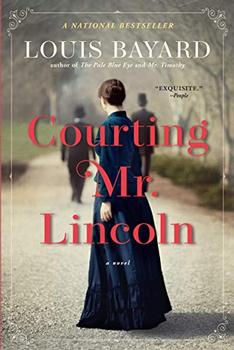Summary | Excerpt | Reading Guide | Reviews | Beyond the book | Read-Alikes | Genres & Themes | Author Bio

When Henry Ward Beecher was put on trial for adultery in 1875 his trial not only split the country, it split apart his family, causing a particularly bitter rift between his sisters, Harriet Beecher Stowe, author of Uncle Tom's Cabin, and Isabella Beecher Hooker, an ardent suffragist. Harriet remained loyal to Henry, while Isabella called publicly for him to admit his guilt. What had been a loving, close relationship between two sisters plummeted into bitter blame and hurt.
It is 1887, and Henry Ward Beecher lies dying. Reporters from around the world, eager for one last story about the most lurid scandal of their time, descend on Brooklyn Heights, their presence signaling the beginning of the voracious appetite for fallen celebrities we know so well today.
When Henry Ward Beecher was put on trial for adultery in 1875, the question of his guilt or innocence was ferociously debated. His trial not only split the country, it split apart his family, causing a particularly bitter rift between his sisters, Harriet Beecher Stowe, author of Uncle Tom's Cabin, and Isabella Beecher Hooker, an ardent suffragist. Harriet remained loyal to Henry, while Isabella called publicly for him to admit his guilt. What had been a loving, close relationship between two sisters plummeted into bitter blame and hurt.
Harriet and Isabella each had a major role in the social revolutions unfolding around them, but what happened in their hearts when they were forced to face a question of justice much closer to home? Now they struggle: who best served Henry -- the one who was steadfast or the one who demanded honesty?
There are many good reasons to recommend this book but perhaps it's greatest strength is that through the skillful characterization of Harriet and Isabella I could understand why each one felt the way she did. Their actions seem perfectly justified based on the background we are given in their formative years, not only as individuals but as the role they played within the family unit. It's amazing that against the broad background of sweeping historical events, O'Brien's attention to personal and intimate details is what puts the reader exactly where they want to be--immersed in a great story...continued
Full Review
 (771 words)
(771 words)
(Reviewed by Vy Armour).

If you liked Harriet and Isabella, try these:

by Louis Bayard
Published 2020
From the prizewinning author of Mr. Timothy and The Pale Blue Eye comes Courting Mr. Lincoln, the page-turning and surprising story of a young Abraham Lincoln and the two people who loved him best: a sparky, marriageable Mary Todd and Lincoln's best friend, Joshua Speed.

by Robin Oliveira
Published 2019
From the New York Times bestselling author of My Name Is Mary Sutter comes a rich and compelling historical novel about the disappearance of two young girls after a cataclysmic blizzard, and what happens when their fate is discovered.